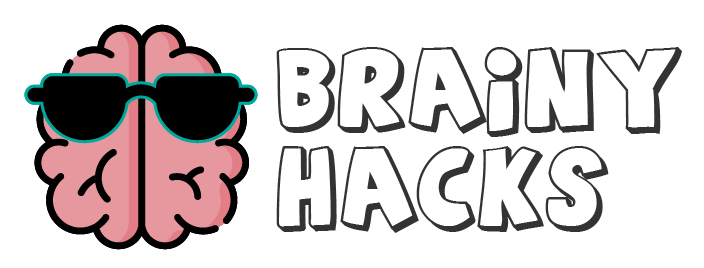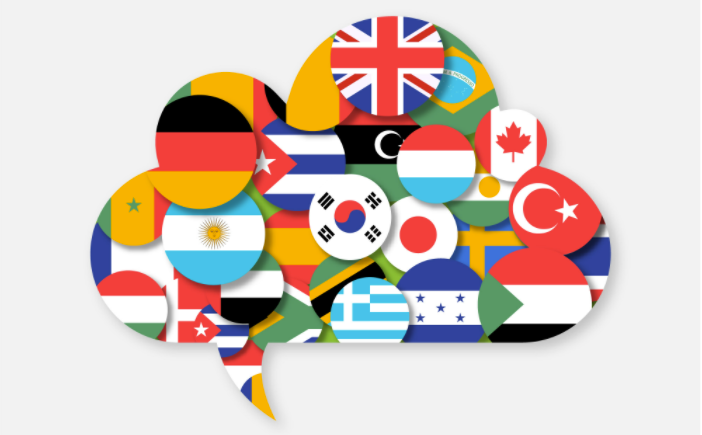There are many benefits to learning a language. The obvious ones are a wider experience of the world and different people’s cultures, as well as enhanced global citizenship. But did you know that learning a language has a significant influence on brain development and can improve memory? In this article, we’re going to share with you how learning a language impacts brain development, what it can do for your memory, and how it can benefit you in ways other than communication.
But first, a warm-up. Take a moment to watch this fascinating and entertaining TEDTalk by cognitive scientist Lera Boroditsky in which she unpacks how language influences the way we think.
Table of Contents
Understanding language acquisition
Learning a language as an adult is very different from when you’re a baby or a small child. The language you acquire as a child in a process called first-language acquisition (or bilingual first language acquisition for speakers of who languages) takes place almost automatically. By comparison, second-language acquisition is learning and being able to use another language as an adult and the process of acquisition is quite different
The primary difference in acquisition is that in your first language (L1), acquisition happens before puberty and uses a part of your brain called the Language Acquisition Center (LAC). As the name suggests, this part of your brain is primed to take up language as it is critical to the survival and success of the human species.
With the LAC active, a child’s brain will process all things language-related like rules, systems, and vocabulary, without the child even being aware of it. It’s a bit like a child learning to stand or walk – it’s just something that takes place “automatically”. This is why when you ask a native speaker why a certain rule may apply to a language question, they will respond with “I don’t really know, it’s just like that!”
By contrast, L2 learning typically happens after puberty when the LAC has “fossilized”, meaning a whole different set of strategies is needed to develop language skills where they’d previously been automatic. Learning a second language is, instead, a much more conscious effort. And where there is effort, there can also be resistance to learning. This is also why it’s necessary for speakers of second languages to use them regularly or at least be exposed to it so that the rules and vocabulary “stick”.
The science behind two languages
There are numerous studies examining learning a language and its influence on the brain. One such example was a study by Edinburgh’s School of Philosophy, Psychology and Language Sciences, Dr. Thomas Bak. In his work, he demonstrated that young adults who had proficiency in two languages typically had better attention and concentration spans on tests compared to single-language speakers. He also performed tests on individuals in their 70s who had become bilingual over the course of their lives and performed much better in intelligence and reading tests.
Another study that took place in Sweden involved visually demonstrating the impact of learning a new language on the brain through the use of MRI scans. One group of participants studied languages, while the other group studied equally rigorous non-linguistic subjects.
The scans revealed that the language-learning participants’ brains had actually increased in size while for the other group, it remained the same. Not only did the hippocampus increase in size (the part of the brain critical to learning and memory), the density of gray matter in the brain of language learners not only increased but so did blood flow after just six weeks.

How does learning a language alter your brain?
As mentioned earlier, learning a second language requires different strategies and mechanisms compared to a first language. One of the biggest differences is the use of one’s memory abilities in order to remember grammar and syntax rules as well as hundreds of words of vocabulary.
This means that language learners have improved memory abilities compared to non-language learners. They’re also shown to have better concentration, and listening abilities, and can ignore distractions better than others. Since the LAC isn’t in play as much as when a first language is being acquired, the brain develops new areas of the brain and forms new neural networks.
Since everything in the brain is connected, one of the benefits of new neural networks is the ability to think more creatively as well as develop greater executive function control (think about it, the more roads you have leading to a destination, the more choices you have on how to get there). A soft skill that is also enhanced is the ability to communicate more clearly.
How does learning a language improve memory
Now onto the fun memory stuff. When learning a new language, it’s an all-encompassing experience. If you want to learn a new word, you might have a sensory experience to go with it. Let’s work with the word “apple” for example. You might hold an apple, introducing a tactile experience. You might smell or taste it for an olfactory or gustatory experience. You’ll hear the word being spoken for an auditory experience, and depending on the circumstances, you’ll see a picture of it, see it in real life, or even read the word, for a dynamic visual experience.
As sensory creatures, humans develop memories and connections to things that create an impact. This is why being engaged and present is so important for memories and connections firstly to be made, and secondly to be long-lasting well into the future. You can read more about this in the pros and cons of Rote Memorization and why the Method of Loci is so effective for memory recall.
When learning a new language, many parts of the brain are active in order to make neural connections and store the information so that it can be retrieved at a later point. And like the rest of the body and physical exercise, the more the brain is exercised through learning vocabulary and grammar, for example, the better, faster, and more consistent it becomes at recall. When recall is used often, the neural pathways also become stronger, which means you’re more likely to remember something. In fact, scientific studies suggest that those prone to developing dementia can help delay its onset by as much as four and a half years, simply because the richness of the neural network and cognitive flexibility is much greater than in a person who only knows one language.
Language Learning Apps to Improve Memory
Two of the largest language learning apps out there are Duolingo and Babbel. Both have been highly successful in gamifying the language learning process to have users coming back time and again to learn languages of their choice at their own pace.
Duolingo is completely free to use but has a paid version if you don’t want to be subjected to annoying ads. Babbel offers a free lesson in each course, but then the rest is behind a paywall. Cost can be a factor for would-be Babbel users, however, they do have discount codes that they share with select online partners.
Take a look at this video for some hacks to help you along with your language learning. Presented by Steve Kaufmann, a world-renowned polyglot who has an understanding of 20 languages, he offers helpful tips to set you on the path to success.
Further Reading & References
Does Bilingualism Influence Cognitive Aging?
The Advantages of Bilingualism Debate
Image sourced from Categories Memory

